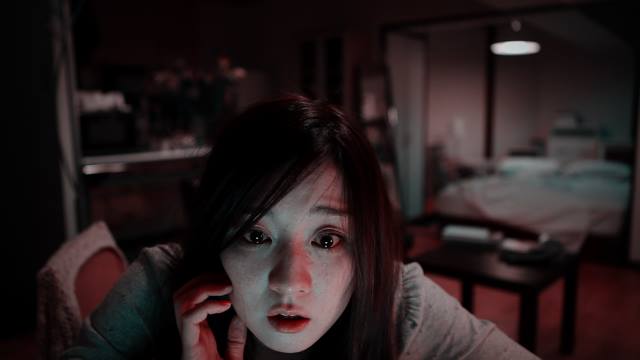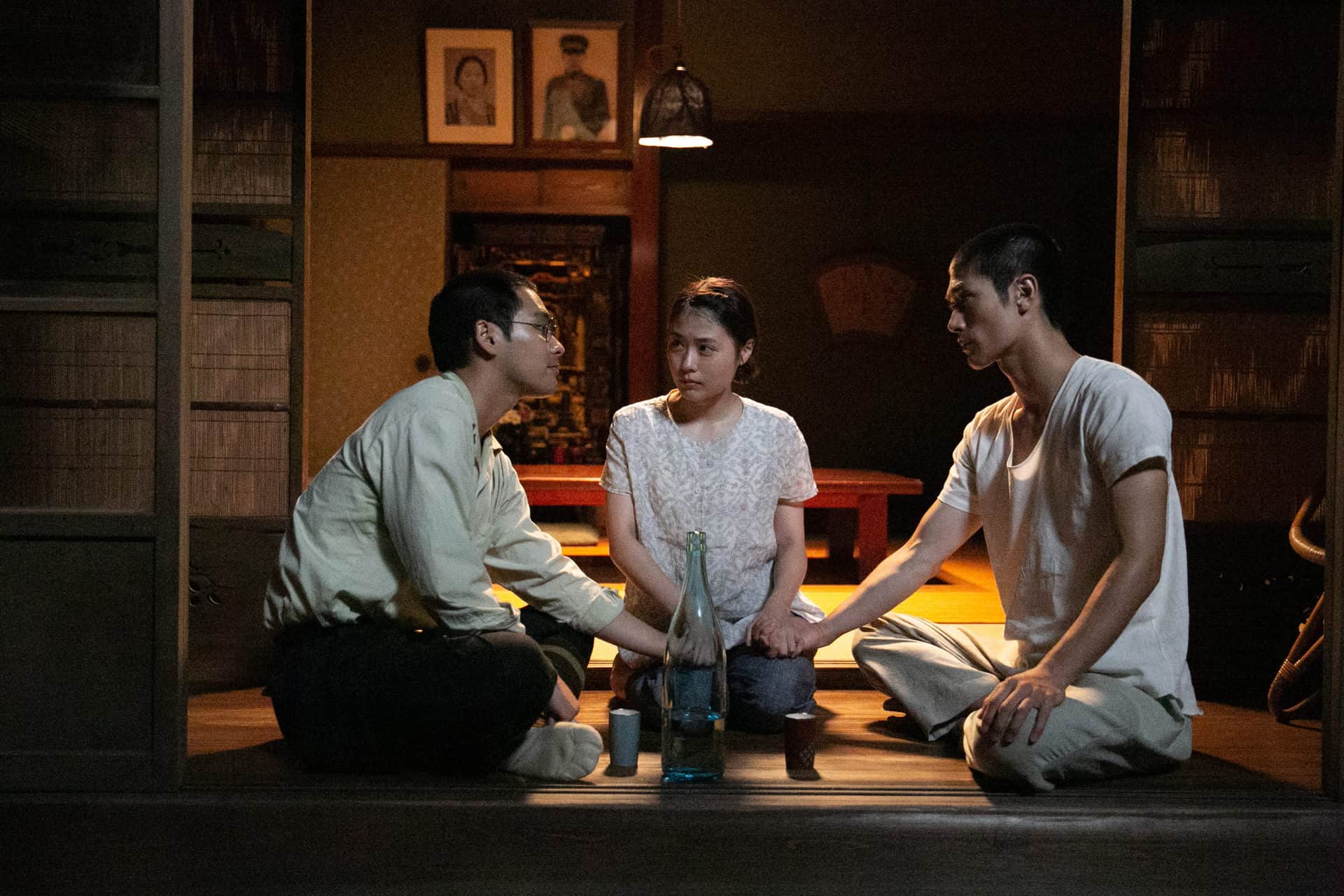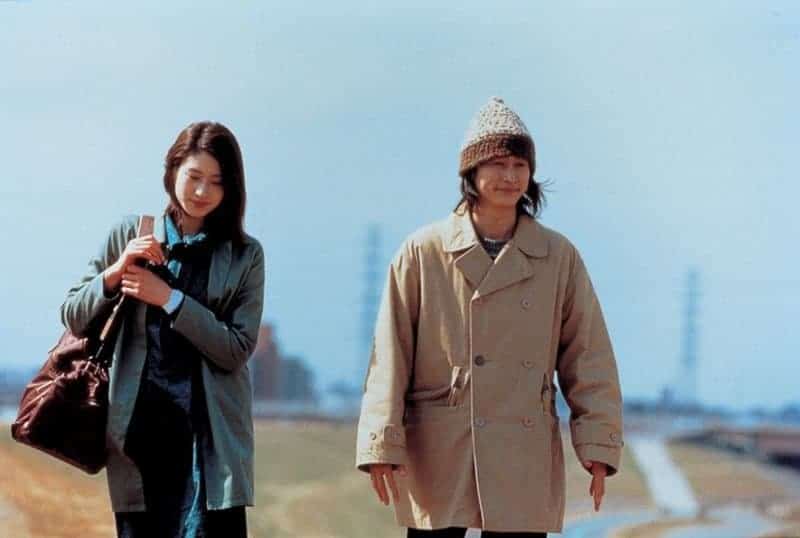Found footage is the last trend that emerged from the J-horror genre, a category that (let's face it) has been almost dead for a decade now. Occasionally though, some interesting productions do emerge. Let us see if “The Room” is one of them.
Watch This Title
The minimal story takes place between a small apartment and a hotel room. Yumi has just moved in the first one, which belongs to her boyfriend, Taka, while he is away on a business trip in New York, where he stays in a hotel. The two of them communicate through Skype, in a course of four days. While everything starts in very cheerful fashion, gradually things become worse. Yumi starts seeing something that seems like a ghost in the house, which terrifies her, while Taka does not seem to believe her. As her psychological situation deteriorates, Taka becomes more tired with her, although he sends one of his friends eventually, to check up on her. Things take an utterly unexpected turn after that, as a number of secrets come out, and a plot twist changes the premise of the film completely.
The minimalism of the script extends to all aspects of the movie, which occasionally functions like a stage play, with Taka's apartment being the main stage and his hotel room just a small window on the laptop, at least most of the time. In this setting, David Shin manages to include a number of social comments, horror, and much drama. Regarding the first aspect, the movie highlights the difficulties a long distance relationship presents, even for a short while, with the trust being as difficult as jealousy and mistrust are easy. The biggest issue, though, seems to be that one cannot directly help the other in dire moments, in such relationships. The horror element seems to derive from the aforementioned concept, as the ghosts can be interpreted as the manifestation of Yumi's feelings regarding her relationship. The drama also comes from the same aspect, with Yumi's downward spiral and the disclosure of the secrets, along with the presence of Taka's friend, being its main ingredients.
However, the problem with “The Room” is that in its 82 minutes, none of the above elements is fulfilled to its fullest, resulting in a movie that seems incomplete in many levels. For example, although the basic premise is of a social drama, Shin has included the horror elements in a fashion that make them seem somewhat irrelevant, while the shocking finale takes the movie in yet another direction. If examined separately, there is nothing wrong with these aspects: the psychological demise of Yumi is quite well presented, the horror moments are as they should be, with abrupt cuts with intense sound that are terrifying in the otherwise calm setting, and the finale gives much “excuse” to the drama. However, their combination does not work so well, with the film looking more like a collage of ideas than a solid work.
David Shin based the majority of the film upon Ayumi Ito, who plays Yumi, and she delivers in impressive fashion, with her transformation from a happy and cheerful woman to a nervous wreck being the highlight of the film. Shogen has a secondary role as Taka, although his growing distress from Yumi's behaviour is quite well presented. Evidently, with the film focusing so much on the two characters' faces through constant close ups, the protagonists had to be very beautiful, and in that aspect, they both deliver to the fullest.
Technically, the film highlights its small budget and minimalist nature, although the use of light and sound, particularly in the horror scenes, is quite good. The depiction of the dialogues through Skype is accurate, with Shin even including the lagging and the moments the program gets “stuck”. I also liked the way he presented Yumi in a setting that becomes darker as her psychology worsens, with her painted nails providing the only essence of color in the growingly bleak setting of the house.
“The Room” has its faults, but I have to admit I watched the whole of it with interest, without ever feeling bored or tired by it, and in that fashion, I think it definitely deserves a watch.



















nonostante la discrezione della gente, i film lasciano una gioia…